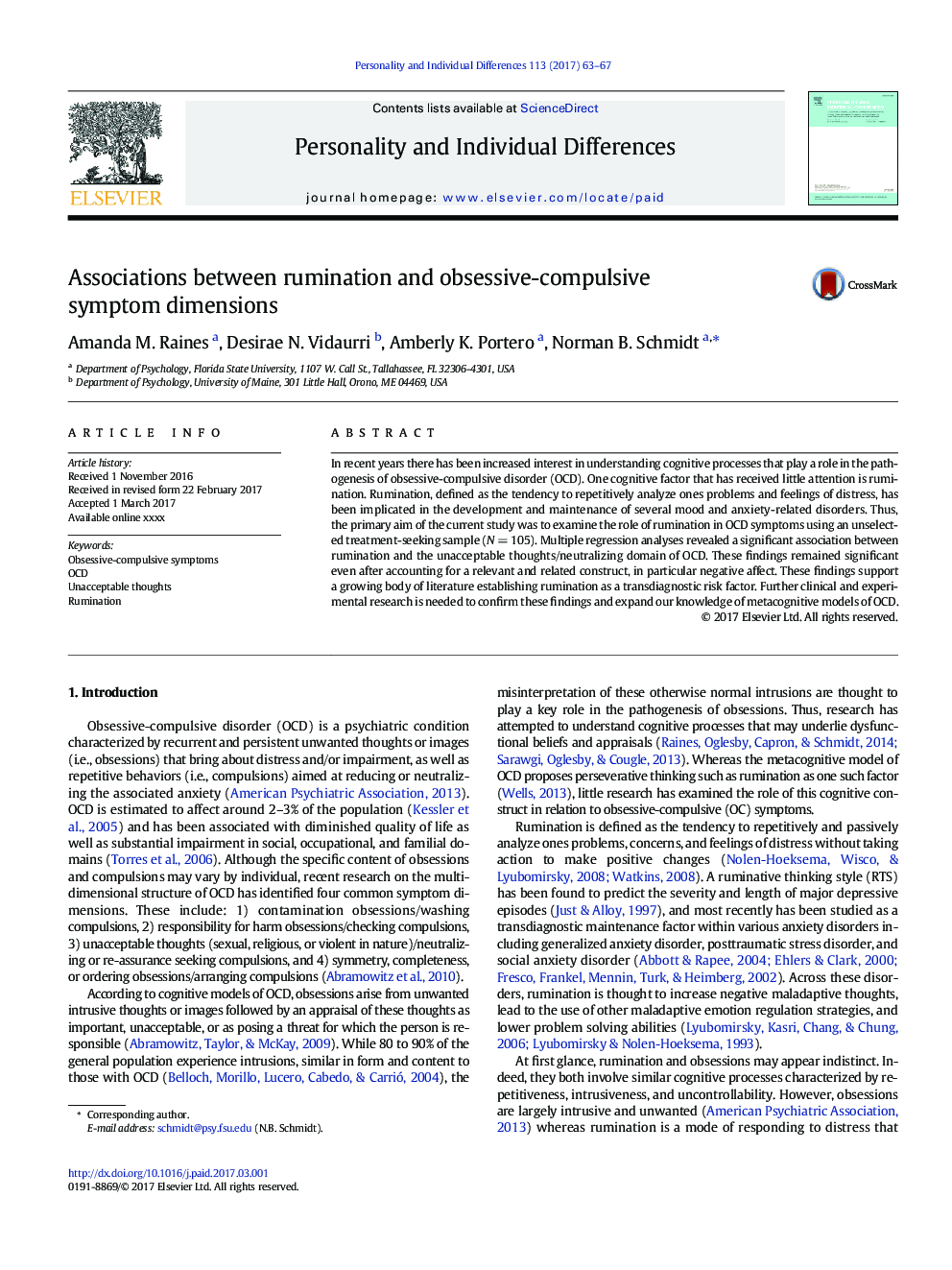| Article ID | Journal | Published Year | Pages | File Type |
|---|---|---|---|---|
| 5035759 | Personality and Individual Differences | 2017 | 5 Pages |
Abstract
In recent years there has been increased interest in understanding cognitive processes that play a role in the pathogenesis of obsessive-compulsive disorder (OCD). One cognitive factor that has received little attention is rumination. Rumination, defined as the tendency to repetitively analyze ones problems and feelings of distress, has been implicated in the development and maintenance of several mood and anxiety-related disorders. Thus, the primary aim of the current study was to examine the role of rumination in OCD symptoms using an unselected treatment-seeking sample (NÂ =Â 105). Multiple regression analyses revealed a significant association between rumination and the unacceptable thoughts/neutralizing domain of OCD. These findings remained significant even after accounting for a relevant and related construct, in particular negative affect. These findings support a growing body of literature establishing rumination as a transdiagnostic risk factor. Further clinical and experimental research is needed to confirm these findings and expand our knowledge of metacognitive models of OCD.
Related Topics
Life Sciences
Neuroscience
Behavioral Neuroscience
Authors
Amanda M. Raines, Desirae N. Vidaurri, Amberly K. Portero, Norman B. Schmidt,
